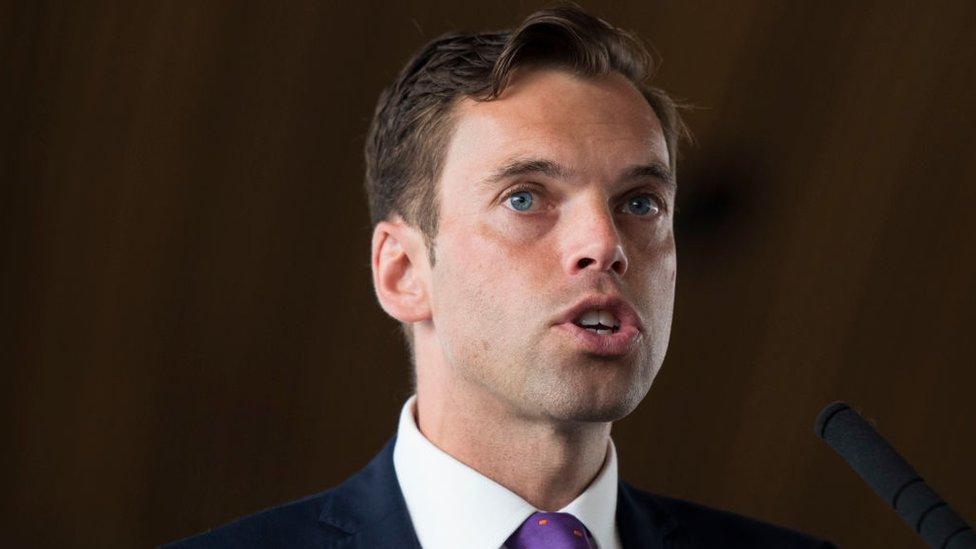Plaid Cymru: What we know about new leader Rhun ap Iorwerth
- Published
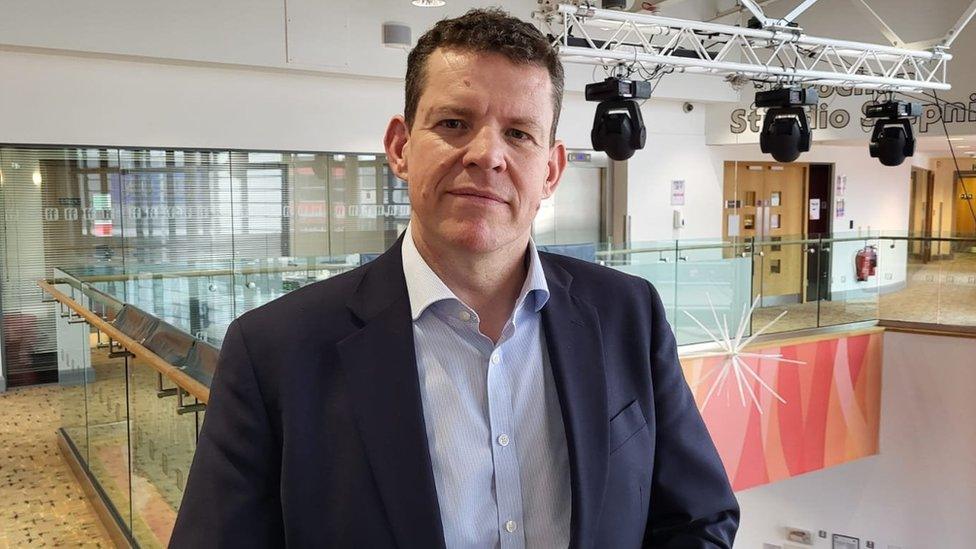
Rhun ap Iorwerth becomes Plaid Cymru leader a decade after switching from journalism to politics
One of the first things that strikes you when you meet Rhun ap Iorwerth, apart from the fact he's quite tall, is his self-confidence.
Then there's the almost constant positivity.
By all accounts, he has been driven and highly competitive from an early age.
Some politicians give us an out-going, larger-than-life performance in public, but can be a little shy and retiring away from the political stage.
That description could not apply less to Plaid Cymru's new leader.
Who is he?
As the opposition party's health spokesman during the pandemic, and one of its two deputy leaders, Rhun ap Iorwerth has arguably been the most high profile Plaid politicians of the last few years, apart from previous leader Adam Price.
He has been a vocal critic of the Welsh government's record on the troubled Betsi Cadwaladr health board, calling for the health minister to be sacked.
He also accused First Minister Mark Drakeford of being "humiliated" when the Welsh Labour leader clarified in a letter comments he had made in the Senedd about the health board.
The opposition politician's statement, in a news release, appeared to make for a chilly atmosphere between Adam Price and Mark Drakeford later the same day in April, when the two leaders visited a school together, as part of a co-operation deal between the Welsh government and Plaid Cymru.
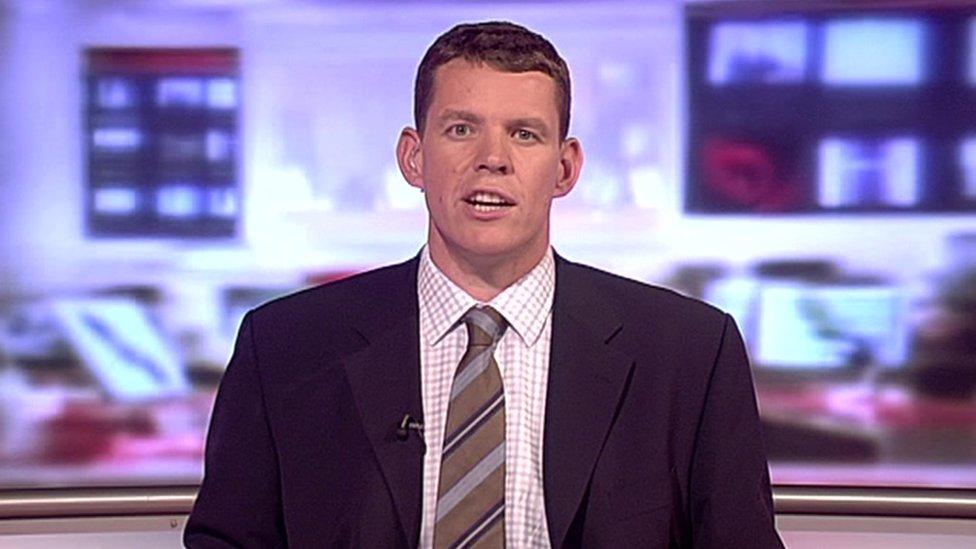
Presenting Newyddion in 2009
What did he do before Cardiff Bay?
Rhun ap Iorwerth entered politics in something of a whirlwind, in the run-up to a by-election in Anglesey in 2013, the island where he grew up (he then headed to Cardiff University to study Politics and Welsh).
Before becoming a politician, and after studying politicians at college, he spent two decades or so reporting on them.
Close your eyes when he's speaking in the Senedd, and you sometimes hear a little of the television presenter-reporter in his delivery.
As a BBC journalist and broadcaster, he was a regular fixture on the airwaves in Wales, describing political goings on across television and radio.
He also presented S4C's BBC produced news programme Newyddion, BBC Wales politics show Dragon's Eye and the Radio Wales and Radio Cymru morning news flagships.
How did he move from journalism to politics?
Suddenly quitting the BBC a decade ago, he won Plaid Cymru's nomination to be its candidate at the Ynys Môn by-election, a vacancy created by a decision by former party leader Ieuan Wyn Jones to leave the Senedd chamber to lead the new Menai Science Park.
Given his previous impartial BBC Wales role, Rhun ap Iorwerth's dramatic step through the looking glass into the partisan world of politics prompted some coughing and spluttering from management at the corporation.
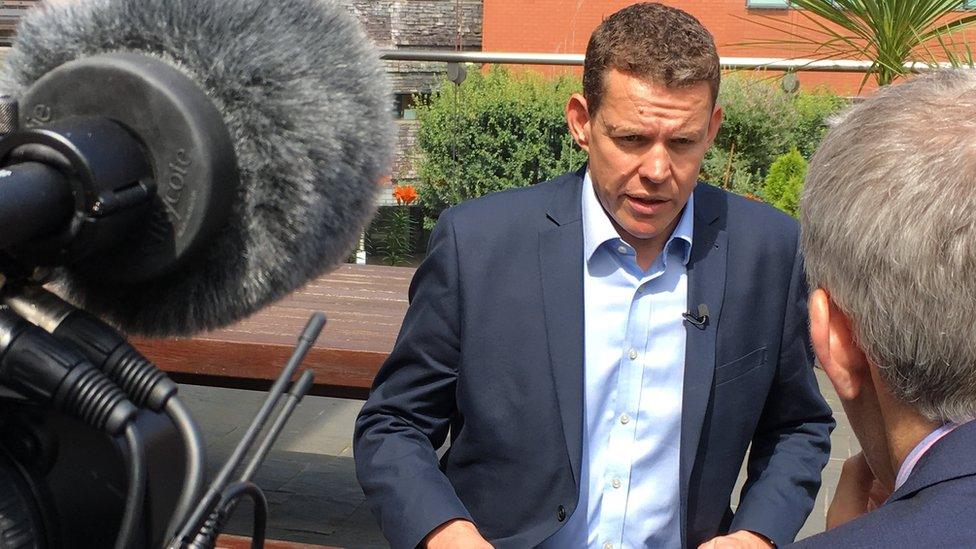
Rhun ap Iorwerth declaring his 2018 leadership bid
Having easily won the by-election, he told Wales Online that the death of his mother, Gwyneth Morus Jones, had played a role, external in him turning to politics, to make a contribution to his community, as she had done.
A teacher, she'd been president of nursery schools organisation Mudiad Ysgolion Meithrin, teaching union UCAC, national women's movement Merched y Wawr and served on the Welsh Language Board, amongst other bodies.
How did he get to be leader?
The questions soon began, from those he'd left behind in the journalist trade, about whether the new face in Cardiff Bay fancied being Plaid Cymru top dog one day.
He did.
His first chance came five years later, in 2018, when rumours swirled about possible challenges to Leanne Wood's leadership, and there were grumbles within Plaid Cymru ranks that the party was in a bit of a rut.
In a television interview, she said she would welcome a challenge, and one commenced.
Yet there was another Plaid Cymru leader-in-waiting at the front of the queue - Adam Price.
Both men launched their campaigns on the same day, with leader-in-waiting number one taking nearly half the vote in the contest.
Rhun ap Iorwerth came second and Leanne Wood third.
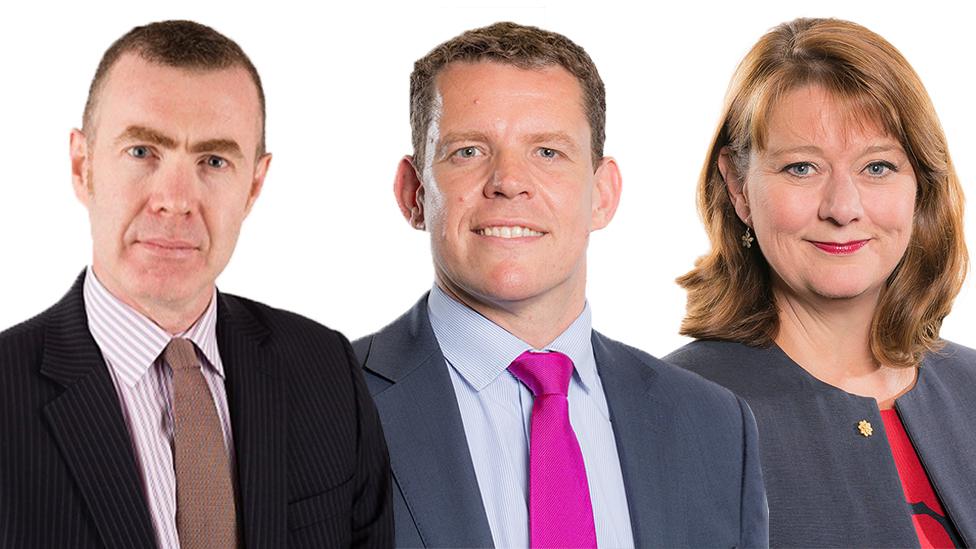
Adam Price and Rhun ap Iorwerth challenged Leanne Wood for the leadership in 2018, a contest Mr Price won
By September last year, the Ynys Môn MS seemed to be getting itchy feet in Cardiff Bay, hatching plans to run to be Anglesey's MP in Westminster.
But when Adam Price quit in May, after a scathing report on misogyny, harassment and bullying in Plaid Cymru, many in the party believed he was the obvious replacement.
So much so, there was no leadership contest, and Rhun ap Iorwerth has taken over at the nice round age of 50.
At the same time, there was disappointment that there wasn't a female candidate to lead the party this time, and calls for a joint leadership structure in the future, with a man and a woman sharing the role.
What will his leadership look like?
We've not heard much in the way of policy commitments from Rhun ap Iorwerth thus far, apart from roughly reiterating the party's current position on things.
He hasn't set out his stall in the way he would have been expected to if he had faced a challenger.
No-one seems to expect him to tear up the cooperation agreement with Labour ministers, and with it the larger Senedd, constitutional and other policy initiatives which Plaid Cymru will point to as achievements when election campaigning.
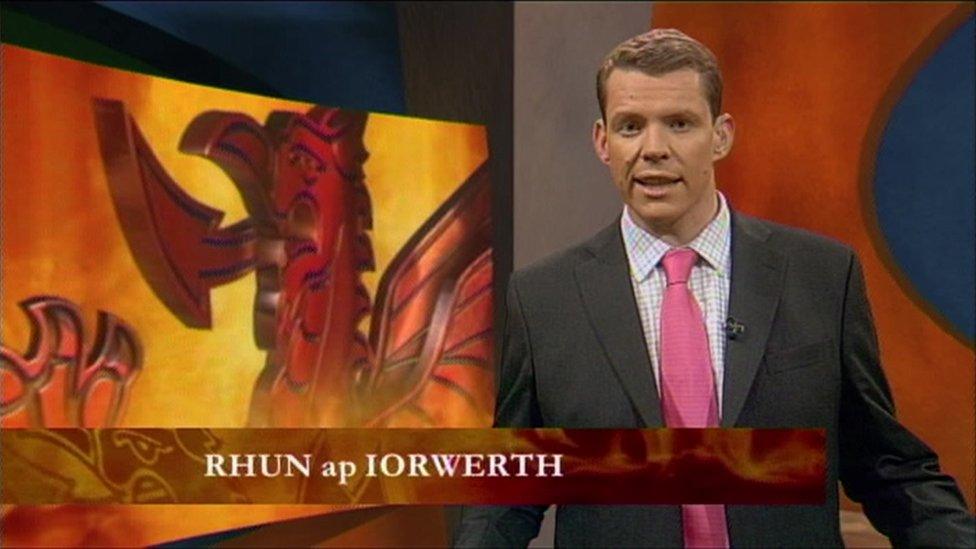
Hosting BBC Wales politics programme Dragon's Eye in 2007
He'll have to devote serious time to changing the culture inside the party, so that labels of misogyny, harassment and bullying can be cast off.
He'll need people throughout the party he trusts to make those changes, embed those changes and protect them.
Like all leaders, if he hasn't already, he'll need to learn the art of delegation quite quickly to be effective.
Ask any Rhun ap Iorwerth backer why they got behind him and they'll probably say "communication skills" - his ability to get his chosen message over to the rest of us.
His internal communication and organisation skills will also need to be strong, his political antenna for the needs and concerns of Plaid Cymru politicians, staff and the wider membership.
Tackling the cultural issues that consigned his predecessor to the list of ex-Plaid Cymru leaders will be a true test from day one and, potentially, throughout his leadership.
Related topics
- Published16 June 2023
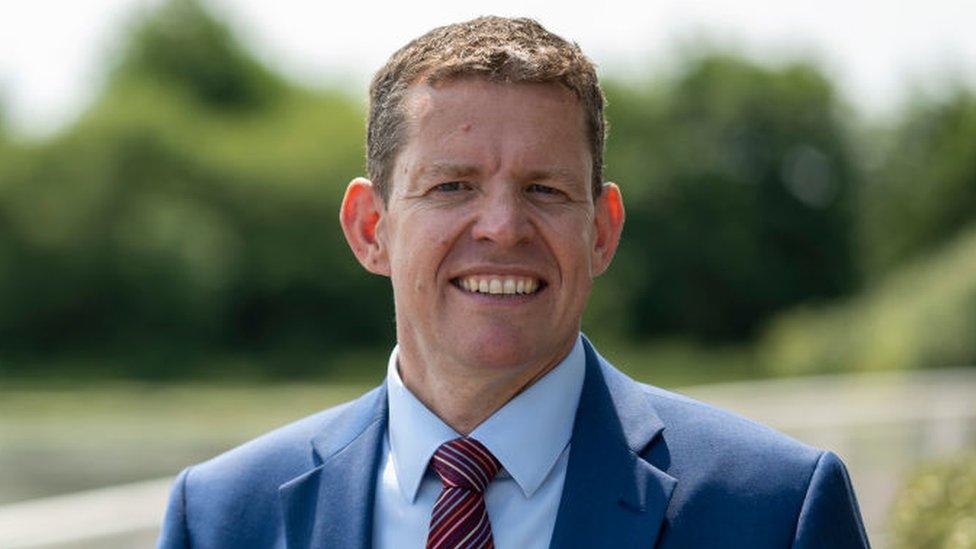
- Published11 May 2023
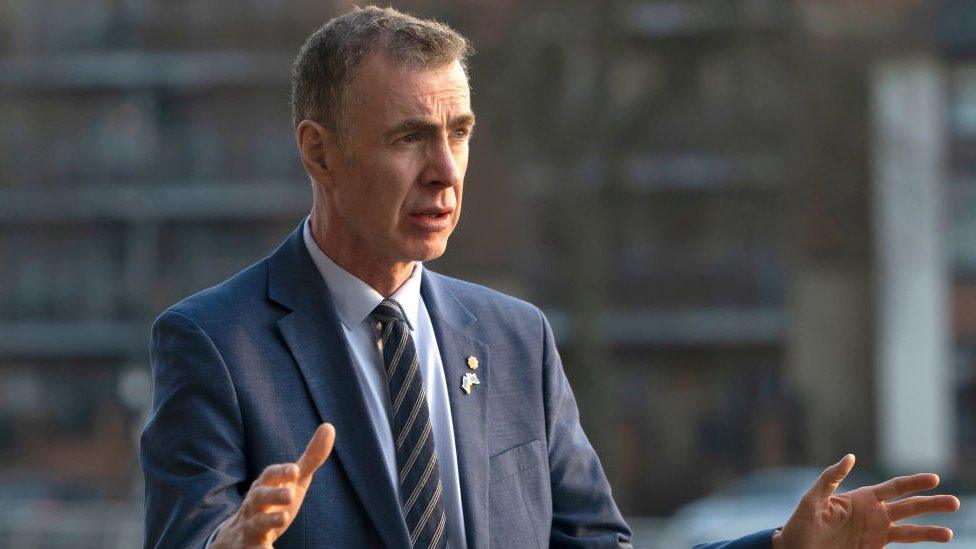
- Published3 May 2023
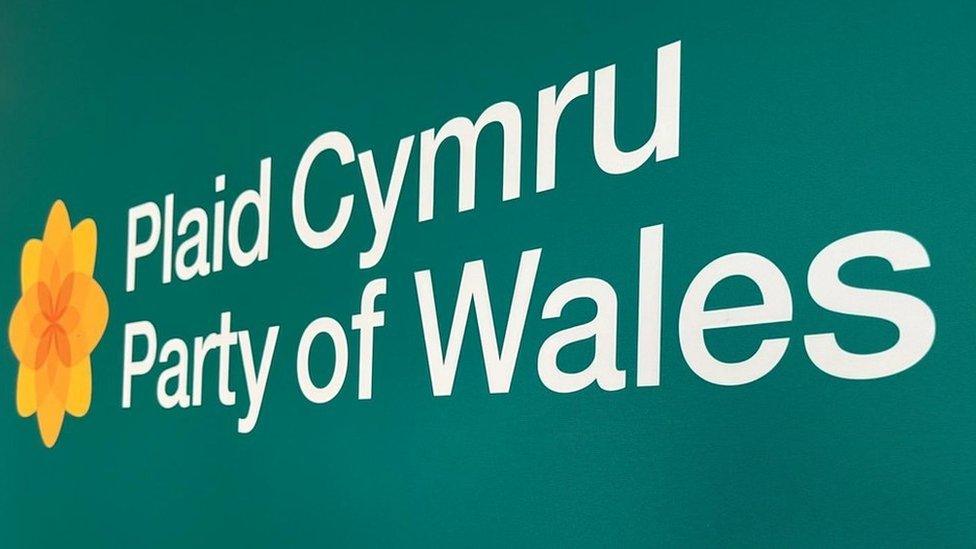
- Published4 May 2023
